A couple of years ago, Sergei Plotnikov was a hot name in NHL free agency as half the league was chasing him. In the end, he signed with the Pittsburgh Penguins, but things didn’t go the way he was expecting them to. In this translated interview, originally appearing on the popular Russian website Sport-Express, the former Pittsburgh Penguins and Arizona Coyotes forward talked about his move overseas, adapting to Pittsburgh and Arizona and other players’ situations.
* You can enjoy the original article by Igor Eronko on Sport-Express.ru here *
Move to Pittsburgh
Igor Eronko: In 2015 summer you bought out your KHL contract to sign in the NHL. I have heard that you paid $500,000.
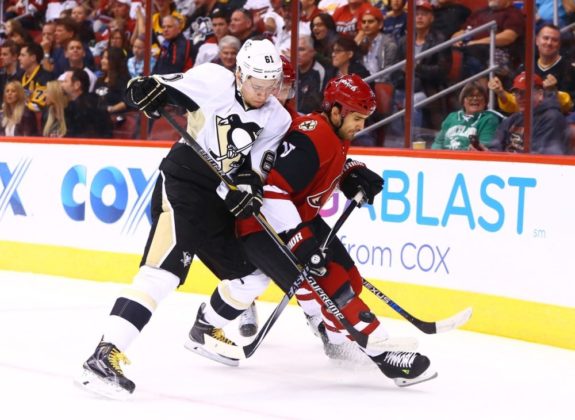
Sergei Plotnikov: It’s not true.
IE: More?
SP: Less.
IE: You lost money when you signed with Pittsburgh? You had a $925,000 contract plus bonus, that you didn’t earn, and that’s also not counting taxes.
SP: That’s what happened.
IE: In vain?
SP: Not really, bad experiences are still experience. I have learned many things there. Like better work in the gym. I learned many things from the trainers. In Pittsburgh, they were very good and gave me good advice.
Trade to Arizona
IE: Your trade to the Arizona Coyotes was a bit strange, you had to change locker rooms right before the game.
SP: I wasn’t shocked, I asked for a trade and I was waiting for that. If you remember, the Penguins had a hard start of the season and even Sidney Crosby couldn’t score much for the first 20 games. He wouldn’t get out of the rink, but he couldn’t score anyway. And after signing a contract with me, the team traded for Phil Kessel from the Maple Leafs and some of the injured players got back.
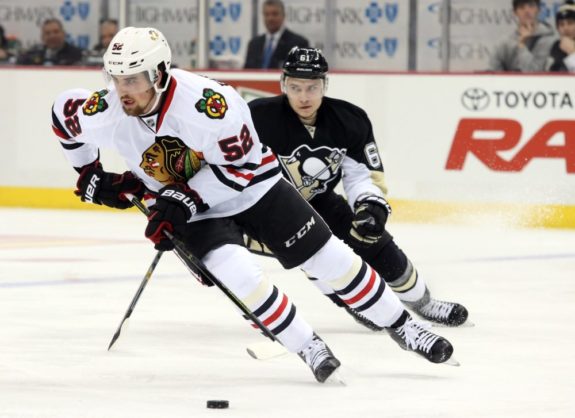
So after this happened it was kind of clear that some of these players would play where I should have played myself. I was just surprised that my trade was so long to do when it could have happened much earlier. It was clear that I wasn’t going to play for Pittsburgh. The head coach told me that I wasn’t going to play. So we agreed (to) a trade, but I have been told that they were sorry, but that they couldn’t trade me. So I needed to sit down for some time, a couple of months.
IE: Do you regret having signed with the Penguins? Half of the league was interested in getting you.
SP: Yes, if I knew that it ended up like that, then I would have signed with someone else.
IE: With a team where it would have been easier to get a spot?
SP: Maybe, but more exactly, where I would have been more necessary.
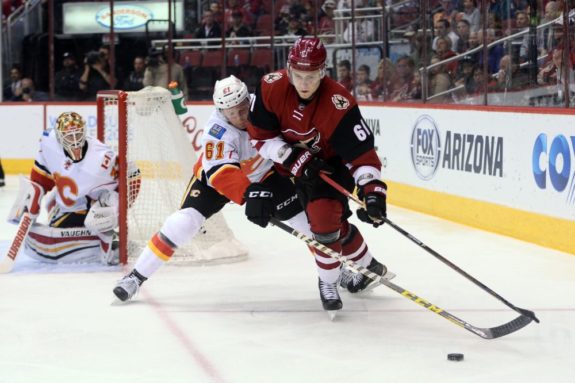
IE: And what that team would be?
SP: Hard to say now. We should have a look at the rosters, who arrived, who left. What free spots are there. Who’s the coach, who’s the GM. It’s quite a job, probably it’s better if an agent does that, it’s his job to understand what is the best team to look at.
Sergei Plotnikov and Vadim Shipachyov
IE: Maybe Vadim Shipachov (is) also thought to have chosen the wrong team?
SP: Each player should think about it in his single way. The only thing I don’t understand is how they could sign a player with such a vision of the ice and (not) find him good linemates.
IE: Vadim didn’t speak English.
SP: You know that before signing a player, [NHL teams] know him, know his potential problems, his style, his strong and weak points.
IE: At that time they only had one player signed.
SP: They still knew [Shipachyov] anyway. They knew what players they were going to get in the expansion draft and they also knew what players to put on his left and right. But things don’t always develop the way we want to.
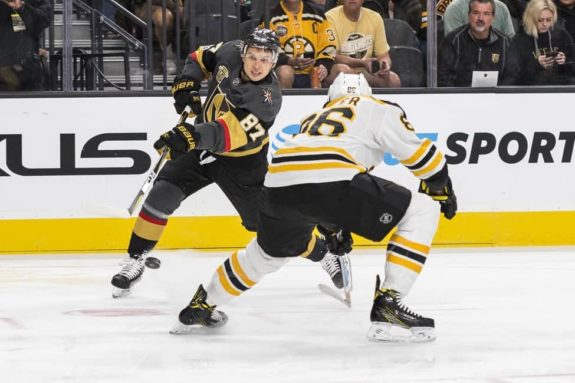
IE: Shipachyov’s situation was perhaps similar to yours.
SP: In principle, yes. Vadim is very good on the power play, and in the NHL everyone talks about “deserving” your spot. Vadim needed at least one chance to play on the power play with the players he should have passed the puck to. Maybe if he got that chance, then he would have stayed there, but now talking about it makes little sense.
IE: Vadim had two NHL teams who were actively chasing him, but he just said that he was going to get back to Russia.
SP: He’s got a wife and kids. You’re in a foreign country, and it’s hard. I completely understand him as I was in his same situation. But it was even harder for him as he has his kids. He’s an emotional guy. I know that in America they ask you to smile and be positive, but the majority of Russians can’t really smile when things don’t go the right way. I think that it was a problem for both me and him.
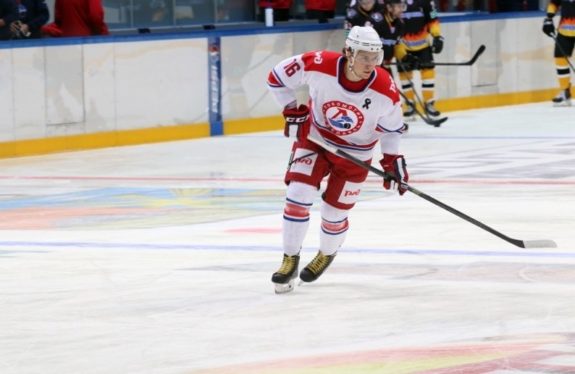
IE: In Arizona you weren’t offered a new contract, but did you have any chance to stay?
SP: Frankly speaking, I just went there to finish the season. The team was already formed and it was clear that I wasn’t going to play in the second line or on the power play.
IE: Arizona was one of the worst teams in the league. Didn’t you find a chance to progress anyway?
SP: I don’t know. I and Viktor Tikhonov asked to play together. The coach promised us that, told me that they were thinking about how to achieve that, but in the end we didn’t play together even just once.
IE: Your fourth line, with Boyd Gordon and Jordan Martinook, was fun.
SP: It was hard to play. Not because it was tiring or what, I mean to play in the same sense of the word. It was hard, although I have made clear that I could play in different ways. But playing the way the coach asked, not a step to the left and not a step to the right, was incredibly hard.

You know that you can play and you get asked only to dump the puck and hit the opposition. Within these strict rules, it was hard for me to understand what I could and what I could not do. But with time it was definitely easier.
IE: When you were playing in Arizona, did you already know that you were going to get back to Russia?
SP: I understood that I wouldn’t get good offers from the NHL, and I needed to get my confidence back not to lose myself in the next season.
IE: Where you surprised that Sidney Crosby always tries to support everyone?
SP: That is what he should do. He’s the captain. He’s the face of the team, if not of the whole league. So he needs to match that and he tries hard.

IE: What else do you remember him for?
SP: He is a very hard worker. He never relaxes during the practices. He’s always practicing at his maximum and wants other people to do the same. This is definitely a plus, especially when you have many young players around. They try to do what he does, if he goes to the gym, then also the younger players go there.